News
‘Presidential System Not Working’, Reps Member Pushes For Parliamentary Democracy
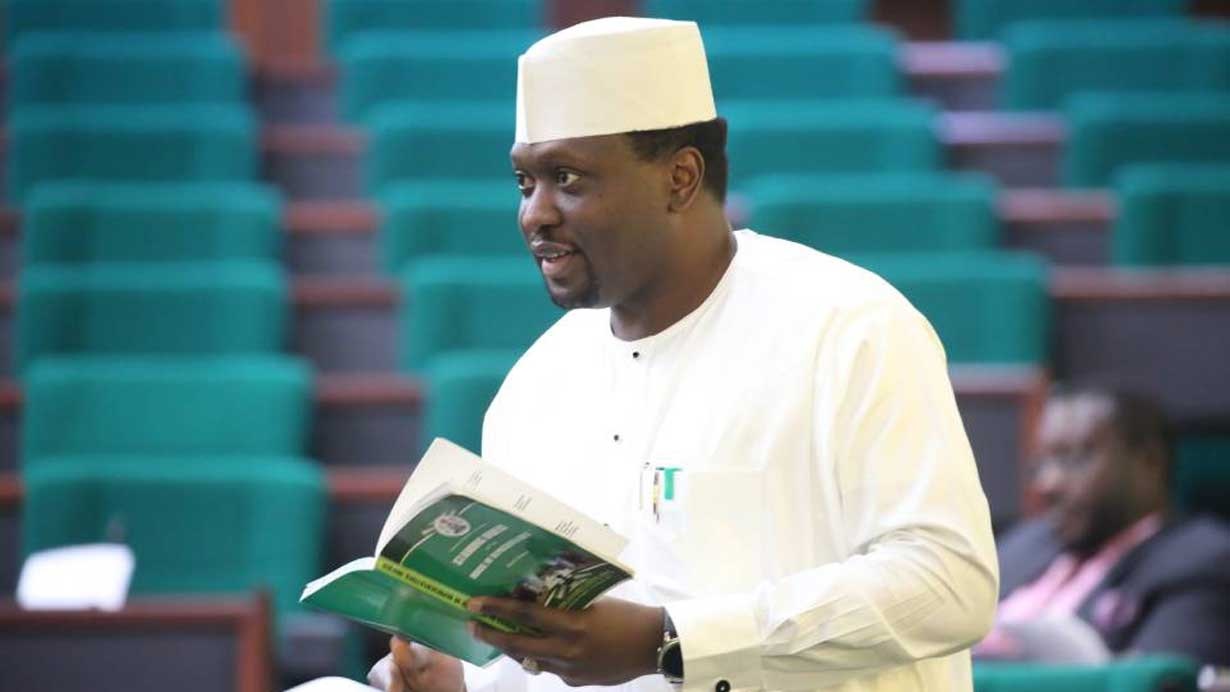
A member of the House of Representatives, Abdusamad Dasuki, has said the current presidential democracy being practised in Nigeria is not working, and should be abandoned for a return to the parliamentary system of government operational in the country during the First Republic.
The federal lawmaker representing Kebbe/Tambuwal Federal Constituency in Sokoto State, stated this on Inside Sources with Laolu Akande, a socio-political programme aired on Channels Television on Friday.
According to him, Nigeria is in a “state of quagmire” and “like a house with a faulty foundation”, as the current system has not been able to deliver representative democracy where members of the executive arm of government, beginning with the President, are fully accountable to the people of Nigerians.
Dasuki said, “Things are not working in Nigeria, we can’t deny that fact. This (the move for parliamentary system) is not something that started with this Assembly, some of us that were in the 8th Assembly believed that there was something that was fundamentally wrong with the system.
“The system is faulty. Some will say it is the Nigerian factor, the Nigerian people and all that, but the system itself gives you so much power and power corrupts absolutely.
“Our founding fathers had the foresight to believe that Nigeria is a plural state, and everything must be pluralistic. Let’s have a situation where even if it is the elite coming together to come up with what works for us.”
Mid-February, talks of parliamentary democracy resurrected in Nigeria when a group of 60 lawmakers in the House of Representatives sought amendments to the 1999 Constitution to transition from the current presidential system to the parliamentary system of government.
The lawmakers said the transition has become necessary to reduce the cost of government in the face of dwindling revenue.
Titled, ‘The Bills Proposing Constitutional Alterations For a Transition To Parliamentary System of Government,’ the bill was sponsored by the House Minority Leader, Kingsley Chinda, and 59 others. The bill was read on the floor of the House during plenary in Abuja but has not progressed since the first reading about four months ago.
Many prominent Nigerians have since joined the call for a transition to the parliamentary system of government.
Dasuki, one of the lawmakers supporting the bill in the green chamber, said, “In our draft proposal, which is not cast in stone, we want a homegrown parliamentary system, not one copied from somewhere else.”
“For me and my colleagues, what we are proposing is that among the elected representatives (in the parliament), we have the Prime Minister and the ministers.”
He imagined a parliament where President Bola Tinubu is the Prime Minister, Atiku Abubakar of the Peoples Democratic Party (PDP) is the head of the opposition, and Peter Obi of the Labour Party (LP) is a member of the parliament as well.
Dasuki said such a parliament won’t breed unaccountable, inefficient and corrupt cabinet members as they could be recalled by elected representatives in the parliament anytime the people feel they aren’t giving their best.
Dasuki said, “We want a leader where every single day, you are on top of the situation; you are able to relate with citizens. A leader should be able to communicate and say what’s going on.”
The lawmaker said he and his colleagues in the lower chamber are proposing that the parliamentary system start with the local government election in Nigeria in 2027. He opined that the local government polls should be regularised with the general elections.
He said, “The ward councillors should elect their local government chairmen among themselves. If a chairman is not leading right, he is taken back and the councillors elect another chairman. That is the proposal. There shouldn’t be an election for local government chairmen in 2027, the same as for governors and the President. The elected representatives should elect from among themselves.”
Dasuki said after the initial reading of the bill in the green chamber, the proponents of parliamentary democracy decided to be strategic about the second reading. He said lawmakers have been visiting those who witnessed the First Republic to seek their support and advice. He said elder statesmen like Ango Abdullahi, Edwin Clark, Segun Osoba, Bisi Akande, and others have been consulted and they approved of parliamentary democracy.
News
SAD! APC lawmaker dies while asleep

The lawmaker representing Kaura Namoda South Constituency in the Zamfara State House of Assembly, Aminu Ibrahim Kasuwar-Daji, has died.
It was gathered that the lawmaker passed on in his sleep during the early hours of Wednesday.
Aminu Ibrahim Kasuwar-Daji’s sudden death came as a shock to many in the state, especially his colleagues and political associates.
The All Progressives Congress (APC) in Zamfara, the party under which he was elected, expressed deep sorrow over his passage.
Members of the party, including the State Working Committee and other supporters, described his death as a great loss.
They said he was known for his dedication and honesty in serving his people.
His family, community members in Kaura Namoda South, and fellow lawmakers have been thrown into mourning as preparations for his burial began.
According to Islamic rites, he was buried today at 3:00 pm in his hometown of Kasuwar-Daji, located in the Kaura Namoda Local Government Area.
Many in the state have continued to express grief as they remember the role he played in representing the people and contributing to the work of the state assembly.
News
Just in: Sam Olumekun takes over as INEC’s Acting Chairman
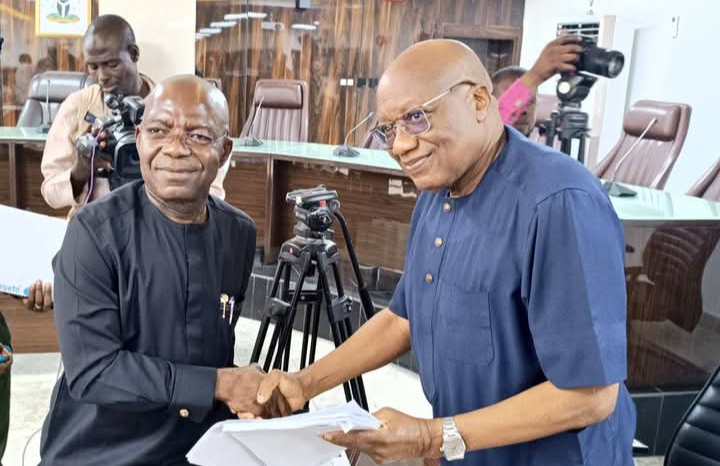
Mr. Sam Olumekun has taken over at the Independent National Electoral Commission (INEC) as Acting Chairman.
Olumekun is INEC’s National Commissioner in charge of Information and Voter Education.
He performed his first duties today, receiving a high-level delegation of the Labour Party (LP) at the Commission’s headquarters in Abuja with other National Commissioners in attendance.
The delegation was led by Abia State Governor Dr. Alex Otti, who visited the Commission to discuss key developments within the Labour Party.
It was gathered that both parties engaged in discussions centered on enhancing collaboration and reinforcing democratic values.
During the visit, Governor Otti formally presented a Certified True Copy of the recent Supreme Court judgment concerning the party’s leadership.
He noted that the meeting was aimed at fostering clarity, mutual understanding, and institutional alignment regarding the Labour Party’s current structure.
Mr. Olumekun, the Acting INEC Chairman, reaffirmed the Commission’s unwavering commitment to neutrality, transparency, and the rule of law in the discharge of its constitutional responsibilities.
Recall that a viral WhatsApp message had indicated that Prof. Mahmood was sacked by President Bola Tinubu and replaced with one Prof. Bashiru Olamilekan.
“INEC Chairman Prof. Mahmud Yakubu has been replaced with Prof. Bashiru Olamilekan by President Tinubu,” the message, which had no attribution, read. However, both INEC and the Presidency debunked the widespread report.
Yakubu, who is rounding off his second tenure in office, is expected to exit the system towards the end of this year.
The process of appointing an INEC chairman is the President nominating a candidate and forwarding his particulars to the Department of State Services (DSS) for profiling.
After such screening, the President, thereafter, takes the name to the National Council of State for its advisory review.
Based on the outcome, the President sends the name to the Senate for screening and confirmation.
News
Crude oil prices slide further, now selling below $57

Crude oil prices have dropped below $57, following a previous rate of $59.78.
This decline coincides with the imposition of tariffs on several countries by US President Donald Trump.
A report from West Texas Intermediate attributes this price slump to consistent 6% reductions observed last week.
JPMorgan Chase & Co has warned that these tariffs could likely push both the US and global economies into a recession this year.
The financial institution explained that the tariffs, set to take effect this week, are expected to have widespread economic repercussions.
Market analysts and the business community have expressed concerns about the negative implications of these measures, predicting a slowdown in economic activities and a subsequent decline in oil demand.
-
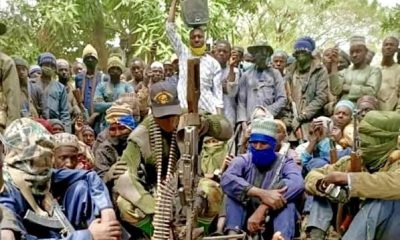
 News10 hours ago
News10 hours agoBanditry:” I was chained for 32days while in their den, killed my wife as I watch-Nat’l Assembly DD narrates experience
-
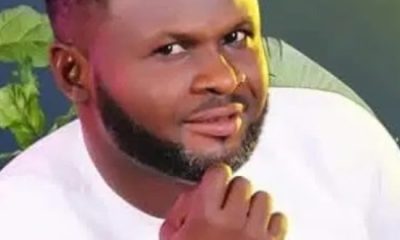
 News6 hours ago
News6 hours agoPolice Inspector Slumps, Dies While Celebrating After Arsenal Wallop Real Madrid 3-0
-

 News11 hours ago
News11 hours agoUS revokes more than 500 foreign student visas
-

 News17 hours ago
News17 hours agoBandits have seized control of 64 communities in Plateau – Gov Muftwang
-

 News13 hours ago
News13 hours agoIbas picks administrators for 23 Rivers LGs(SEE list)
-

 Economy17 hours ago
Economy17 hours agoMobile Money transactions hit $1.68trn in one year
-
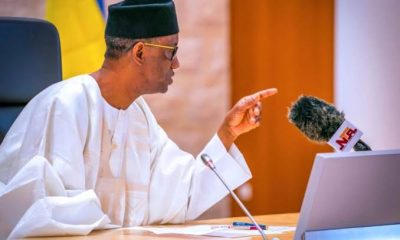
 News18 hours ago
News18 hours agoRibadu warns against ransom payment to terrorists, kidnappers, others
-

 News5 hours ago
News5 hours agoSAD! APC lawmaker dies while asleep





